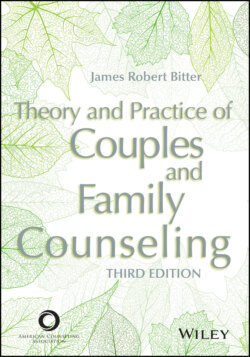Читать книгу Theory and Practice of Couples and Family Counseling - James Robert Bitter - Страница 75
Study Your Own Work
ОглавлениеMuch of the coursework you will have before you see your first family will have addressed your personal development and the way you think about and conceptualize family process. When you start to practice family counseling, you will begin what I hope will be a lifelong commitment to skills development. Nothing will serve this process more than recording as much of your work as possible. Be willing to spend the hours necessary to watch your sessions and reflect on what worked well for you and what you want to change in the future.
It may take you a few times to get beyond being concerned about the way you look or the way your voice sounds, but even these observations can begin to give you some information about what works and what does not. Be patient with yourself and just notice what you actually do: This will also help you be patient with families. What you actually do in family practice will say more about your family practice than what you think you should be doing. What underlying beliefs and values seem to be the foundations for the choices you make in your work? How do family members respond to you and to your interventions? What goals and objectives seem to be present in your efforts? Studying your own work will make the difference between one day having 20 years of experience or having 1 year of experience 20 times over. If you would like some guidance in how to study your own work, I highly recommend the work of Tony Rousmaniere (2017) on deliberate practice.
